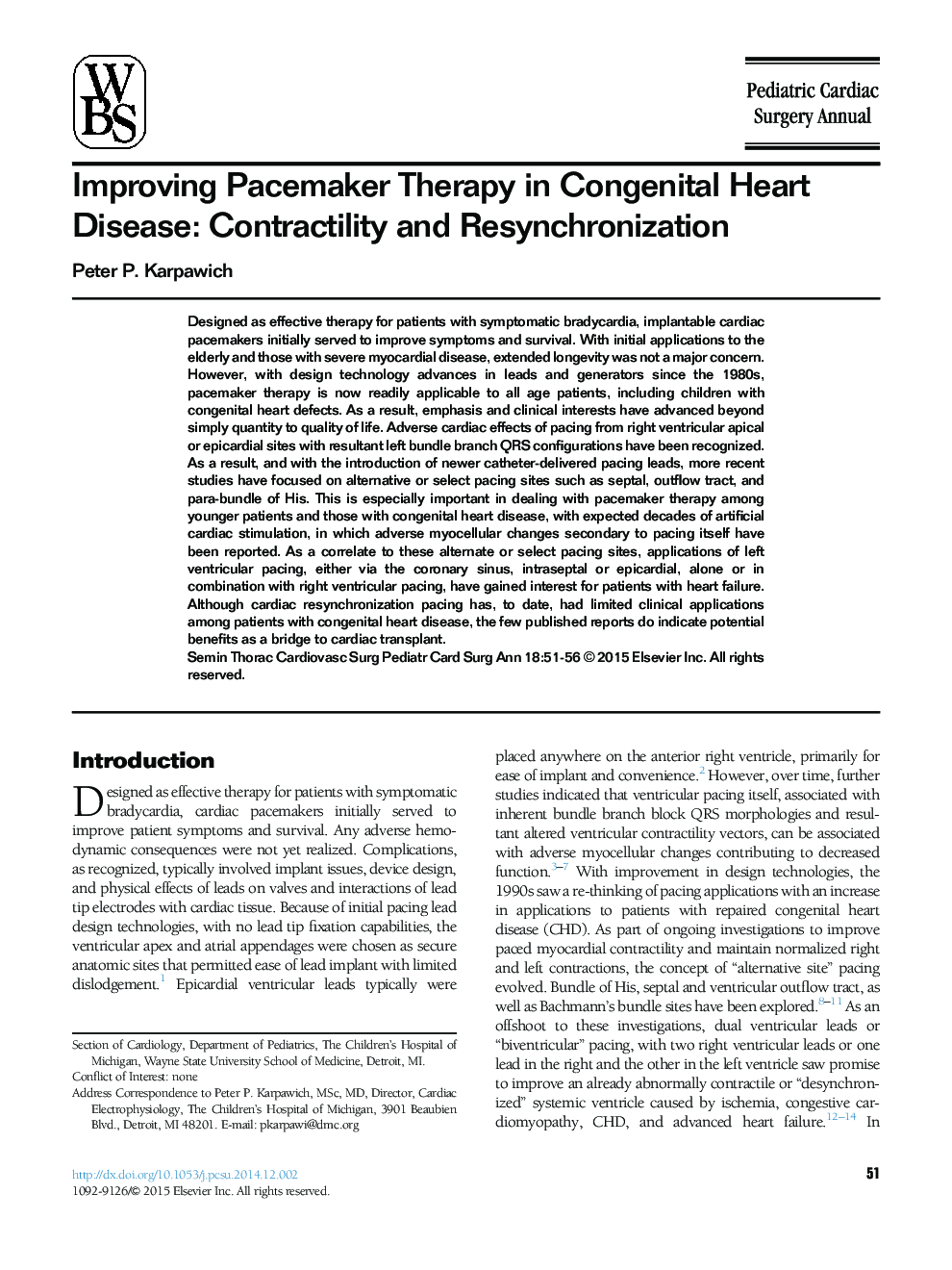| کد مقاله | کد نشریه | سال انتشار | مقاله انگلیسی | نسخه تمام متن |
|---|---|---|---|---|
| 3025884 | 1182840 | 2015 | 6 صفحه PDF | دانلود رایگان |
Designed as effective therapy for patients with symptomatic bradycardia, implantable cardiac pacemakers initially served to improve symptoms and survival. With initial applications to the elderly and those with severe myocardial disease, extended longevity was not a major concern. However, with design technology advances in leads and generators since the 1980s, pacemaker therapy is now readily applicable to all age patients, including children with congenital heart defects. As a result, emphasis and clinical interests have advanced beyond simply quantity to quality of life. Adverse cardiac effects of pacing from right ventricular apical or epicardial sites with resultant left bundle branch QRS configurations have been recognized. As a result, and with the introduction of newer catheter-delivered pacing leads, more recent studies have focused on alternative or select pacing sites such as septal, outflow tract, and para-bundle of His. This is especially important in dealing with pacemaker therapy among younger patients and those with congenital heart disease, with expected decades of artificial cardiac stimulation, in which adverse myocellular changes secondary to pacing itself have been reported. As a correlate to these alternate or select pacing sites, applications of left ventricular pacing, either via the coronary sinus, intraseptal or epicardial, alone or in combination with right ventricular pacing, have gained interest for patients with heart failure. Although cardiac resynchronization pacing has, to date, had limited clinical applications among patients with congenital heart disease, the few published reports do indicate potential benefits as a bridge to cardiac transplant.
Journal: Seminars in Thoracic and Cardiovascular Surgery: Pediatric Cardiac Surgery Annual - Volume 18, Issue 1, 2015, Pages 51–56
